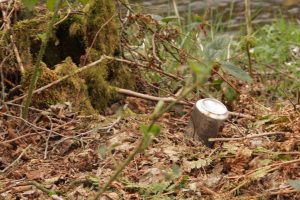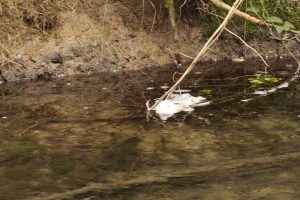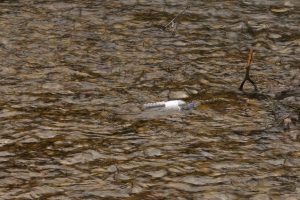Plastic is a part of our everyday lives, within packaging, bags, straws and general waste, collectively build up over time. “Over 75% of the plastic ever produced is already waste. The world’s inability to manage plastic waste results in one-third of plastic, 100 million metric tons of plastic waste, becoming land or marine pollution.” (Wwf.org.au, 2019). As there is no where for this to go it ends up as litter, in landfills and in the ocean, all of which disrupts nature and animals and becomes dangerous to them. Not only is it bad for nature but most of it is not biodegradable and therefore it builds up over time.

Many organisations such as the WWF are worried about the build-up of plastic and the effect it is having on to our planet. “A new WWF report warns that unless there is a dramatic change of approach to the global plastics crisis an additional 104 million metric tons of plastic pollution could enter our ecosystems by 2030.” (Wwf.org.au, 2019). If we don’t change the way we use plastic or are still being less exposed to it through the media, no changes will be made within our lives to help save the planet and nature from littering and plastic pollution.

Marco Lambertini, Director General of WWF-International said “Our existing method of producing, using and disposing of plastic is fundamentally broken. It’s a system lacking in accountability, and currently operates in a way which practically guarantees that ever-increasing volumes of plastic will leak into nature,” (Wwf.org.au, 2019) This therefore means that unless we change the way in which we use and depose of plastic that the plastic will build up in landfills and within the ocean and will damage wildlife and our planet.

After the release Blue Planet 2 and the shocking images of the plastic pollution in the ocean, many companies such as Asda have made changes to their uses of plastic. “His comments come amid growing global calls for cutbacks in the use of plastic. Last week, the former boss of Asda, Andy Clarke, said supermarkets should stop using plastic packaging.” (Sarah Knapton, 2019). Although it will take a couple years to come into place, even these changes can make a huge impact. Other companies such as Mcdonalds have replaced their plastic straws with paper straws in early 2019.

(WWF, 2019)
Not only are major companies such as Asda and Mcdonalds but members of the public after watching blue planet 2 they decided to make life changes with plastic as well. “According to the research, more than 60% of people use reusable water bottles more now than they did in 2017 — and over 70% of 18 to 24-year-olds.” (Global Citizen, 2019). Not only is it just in the ocean but littering in general is a problem due to the lack of bins provided or the lack of bin collection and therefore bins are overfilled, or littering is found in places such as forests and nature reserves.

(Cork, 2019)
Bibliography
Cork, T. (2019). How 420 revellers left Castle Park strewn with rubbish. [online] bristolpost. Available at: https://www.bristolpost.co.uk/news/bristol-news/bristols-parks-left-strewn-rubbish-2782231
Global Citizen. (2019). 88% of People Who Saw ‘Blue Planet II’ Have Now Changed Their Lifestyle. [online] Available at: https://www.globalcitizen.org/en/content/88-blue-planet-2-changed-david-attenborough/
Sarah Knapton (2019). Sir David Attenborough: The world’s oceans are becoming a ‘toxic soup’ of industrial waste and plastic. [online] The Telegraph. Available at: https://www.telegraph.co.uk/science/2017/12/05/sir-david-attenborough-worlds-oceans-becoming-toxic-soup-industrial/
WWF. (2019). Fight against plastic pollution. [online] Available at: https://www.wwf.org.uk/fight-plastic-pollution
Wwf.org.au. (2019). WWF releases report on global plastic pollution crisis. [online] Available at: https://www.wwf.org.au/news/news/2019/wwf-releases-report-on-global-plastic-pollution-crisis#gs.btvuef